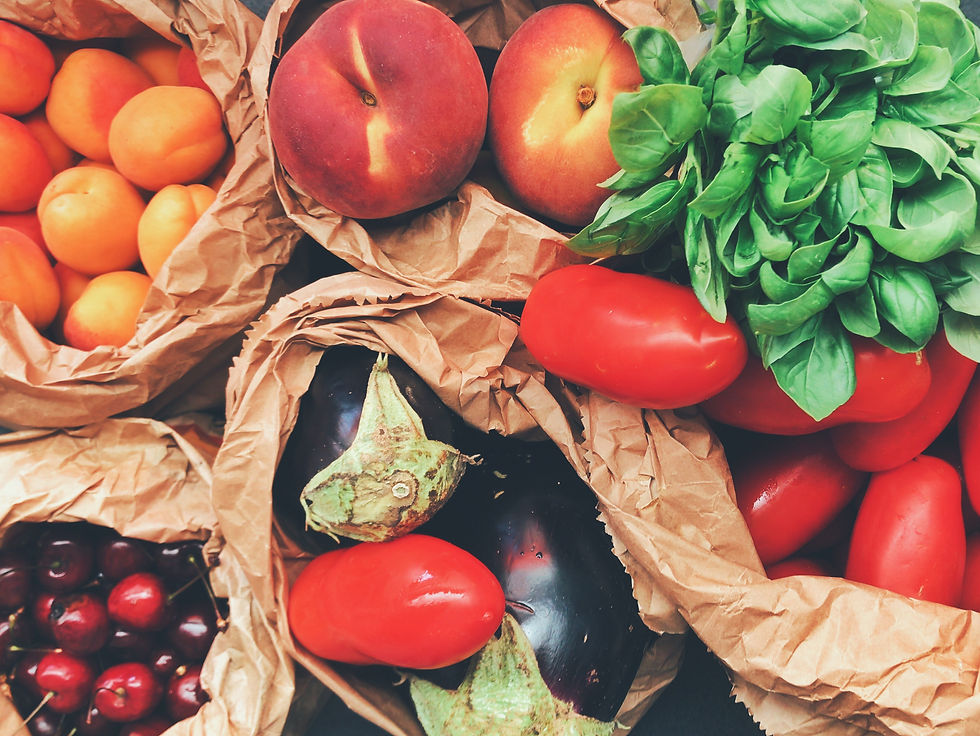5 reasons you should eat whole foods plant-based.
- Dtn Samuel Akapo

- Sep 22, 2020
- 5 min read
Updated: May 13, 2022

Over the past years, there has been an uprising and knowledgeable awareness of what goes on in our bodies when we eat, and what impacts these foods have on our health in general.
Yes, these revelations have been intriguing and very helpful in understanding many things about human health and wellness.
The recent one to be debunked and secret revealed was the Atkins. I know it is no longer news that the inventor himself suffered a great deal of ill health before eventually passing on.
Today I will be sharing with you some great sustainable benefits of embracing whole food eating habits and lifestyles.
You should read this till the end, You will see what I have for you.
What exactly are whole foods?
Whole foods, as the name states, are those foods that are basically unprocessed or have to undergo a little process before they can be eaten. You eat them in their whole forms. Hence, the name "whole foods".
The only foods we have in this category are of the plants' origin. No animal food comes in the category.
Plant foods have been seen to carry great potential and nuttoitional benefits for holistic wellness, one beyond just the absence of diseases.
Let us look at five great benefits of having whole plant foods every day.

1. They improve the number and functions of the disease-fighting antibodies. Naturally, everyone has disease-fighting cells in them. They are scientifically known as immunoglobulins or antibodies. I know you can relate better with antibodies. These cells are primarily concerned with identifying strange cells that have found their way into the body and the antibodies' only job is to hunt them down.outnumbered As powerful as these cells are, they can be out-numbered and over-powered when we continuously eat excessive toxic materials in the name of "food" and do not care for how these little soldiers fare. Then, our next line of action could be to pop antibiotic pills to do the natural works of the antibodies. Sad. But when you are very frequent with making whole foods the core of your meals, you will have just the opposite of the above scenario. Your Immunoglobulins (antibodies) will be strengthened and even increased for more helpful services. The former World Health Organization (WHO) Director-General, Dr Margaret Chan at a time warned that we may be facing a future where many of our miracle drugs will no longer work. In her words, she said; “A post-antibiotic era means, in effect, an end to modern medicine as we know it. Things as common as strep throat or a child’s scratched knee could once again kill.". Can you imagine a person dying from a scratch or a "common" sore throat? It sounds weird, right? But that is what could happen when a person's immunity and disease-fighting cells are weakened and overpowered by invaders or pathogens then the system is powerless. That is how badly behaved the body can be when the defence system and healing function are impaired.
Well, I hope we don't get to this level in the world before we begin to eat whole foods.
2. They help to reduce your risk of dying from the top killer diseases.
The food we eat has been seen to be very responsible for the outcome of our health.
Heart diseases have been at the top of the chart of the world's killer diseases. Stroke, cancers, Alzheimer's, and diabetes, also share these top spots.
But we have seen in several research and studies over and over, how the risks of these diseases and many other diseases are drastically lowered and even reversed by just switching to eating whole foods.
In a pilot study published recently by the Open Journal of Preventive Medicine, they revealed how diabetes and insulin insensitivity was reversed just by eating whole plant food and what happened in seven months. Many of the subjects have been living with type 2 diabetes for a number of years, taking heavy doses of insulin shots.
At the end of the study in seven months, their A1c levels dropped to a nondiabetic 5.8, and insulin doses were also undoubtedly useless at this level. Diabetes is a major risk factor for heart diseases, stroke, kidney failure, and caners.
Over and over, we see the benefits of plant foods, but the mainstream would not let the news break, because there are no sponsors for plants, unlike the pharma.
The action of industrial processing on foods for longer shelf life, taste, texture or even increased gain has reduced the potential of the food and even given it a destructive configuration. Fibre, which is a major part of whole foods are responsible for helping you prevent the high risk of obesity, heart diseases, hypertension, diabetes, and even cancers. The truth is you can only get these fibres in whole foods.

3. They provide more probiotics and prebiotics to you for digestive purposes. In this life, we are all interdependent. That also is the case with our bodies. We house and feed microbiomes in our intestines which in turn helps us with converting those fibres to useable gases for our good since the digestive system cannot readily digest them. The microbiomes are really innocent and good ones. However, the indiscriminate use of antibiotics can clear them off. But based on their roles in the human system, they should not be absent.
The fibre in the fibre-rich foods is what feeds them and causes them to be increased both in strength and number. Also, you can acquire more microbiomes through these same fibre-rich foods. Cabbage, beans, yoghurts, green vegetables, fruits, pickles, whole grains, etc., are very helpful sources.
4. They improve your body weight and metabolic balance.
Have you been struggling with achieving or maintaining a dream bodyweight for health purposes? Embrace whole foods.
Either in shedding weight or gaining mass, whole foods are superfoods for each of these purposes.
Achieving the desired body weight using a whole-food, plant-based approach will not even need you to count calories, skip meals, or starve. That is because most plant foods are naturally nutrient-dense and low in calories.
We have seen how fruits and vegetables, on average, contain about 80–90 per cent water. Just the same way fibre can bulk up the volume of foods without adding calories, water also does the same. Drink more water too.
The quantity and options per time, based on the target goal and activity levels may just be the only difference because whole foods are already quality foods.

5. They help to eliminate toxins from the body, as they add bulk.
The digestion process is never completed without the elimination of wastes. These wastes most often times need a force to flush them through the large intestine where they are channelled to be removed.
Fibres contained in whole foods are very responsible for this great duty. They are the reason why some people spend less than two minutes in the restrooms to pass out solid waste while some others take up to thirty minutes in the restrooms for the same purpose without a easy and good amount of solid waste.
Whole foods stand out because they are only in plants, so you cannot be wrong with them.
Potatoes, cabbage, kale, mushrooms, green vegetables, brown rice, nuts, legumes (like beans, chickpeas, dhal) turnips, yam, carrots, fruits, etc.
In summary
People who switch to a plant-based diet are happy they did. It redefines the definition of a long life. You really will live long and healthily. Not like it will seem so if there are diseases.
One of the reasons there has been such a great following of a whole-food,plant-based dietary
intervention is that people not only tend to get measurably better, but they also tend
to feel much better. You too can make that switch today.
You should have whole plant-based foods included in your next shopping list. You will eat right if you choose right. And it starts with your commitment to do so.




Comments